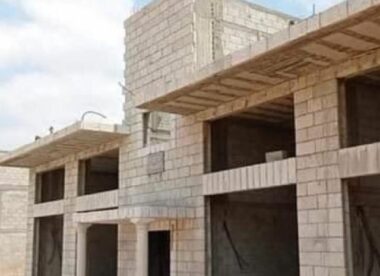NABLUS, Wednesday, March 10, 2021 (WAFA) – Israeli forces Wednesday morning demolished several structures in Eyn Shibli village, east of the occupied West Bank city of Nablus, according to an official.
Ghassan Daghlas, who monitors colonial settlement activities in the northern West Bank, said that Israeli forces escorted bulldozers into the village, where the heavy machineries tore down several shops, covering an area of 500 square meters and belonging to Jamal al-Omari, and his brother, Mazen.
Confrontations erupted when the villagers confronted the demolition operation and the Israeli troops opened fire towards them. Several villagers got suffocated due to inhaling the tear gas.
Located some 16 kilometers to the east of Nablus city, Ein Shibli currently has a population of some 350 and occupies an approximate area of 770 dunams. Its villager are originally refugees who were driven out of their homes in Jaffa and al-Hamma village in what is become known as Israel in 1948.
Under the Oslo Accords, an agreement made 25 years ago that was supposed to last just five years towards a self-governing country alongside Israel, the Palestinian Authority was given limited control over a pocket of land accounting for almost 68 percent of the village’s total area. In contrast, Israel maintains control over the remainder, classified as Area C.
The village is flanked by the Beqaot and Hamra Israeli colonial settlements, located to the east and south of the village, as well as the Beqaot military base to the east of the village.
Israel has also set to two military checkpoints; the Hamra permanent checkpoint and al-Badhan temporary checkpoint, to the east and west of the village, and seized part of the village land for constructing the Israeli bypass Road No. 57, pushing the villagers into a crowded enclave, a ghetto, surrounded by walls, settlements and military installations.
Israeli refuses to permit virtually any Palestinian construction in Area C, which constitutes 60 percent of the occupied West Bank and falls under full Israeli military rule, forcing residents to build without obtaining rarely-granted permits to provide shelters for their families.
In contrast, Israel much more easily gives over 700,000 Jewish Israeli settlers there building permits and provides them with roads, electricity, water and sewage systems that remain inaccessible to many neighboring Palestinians.

